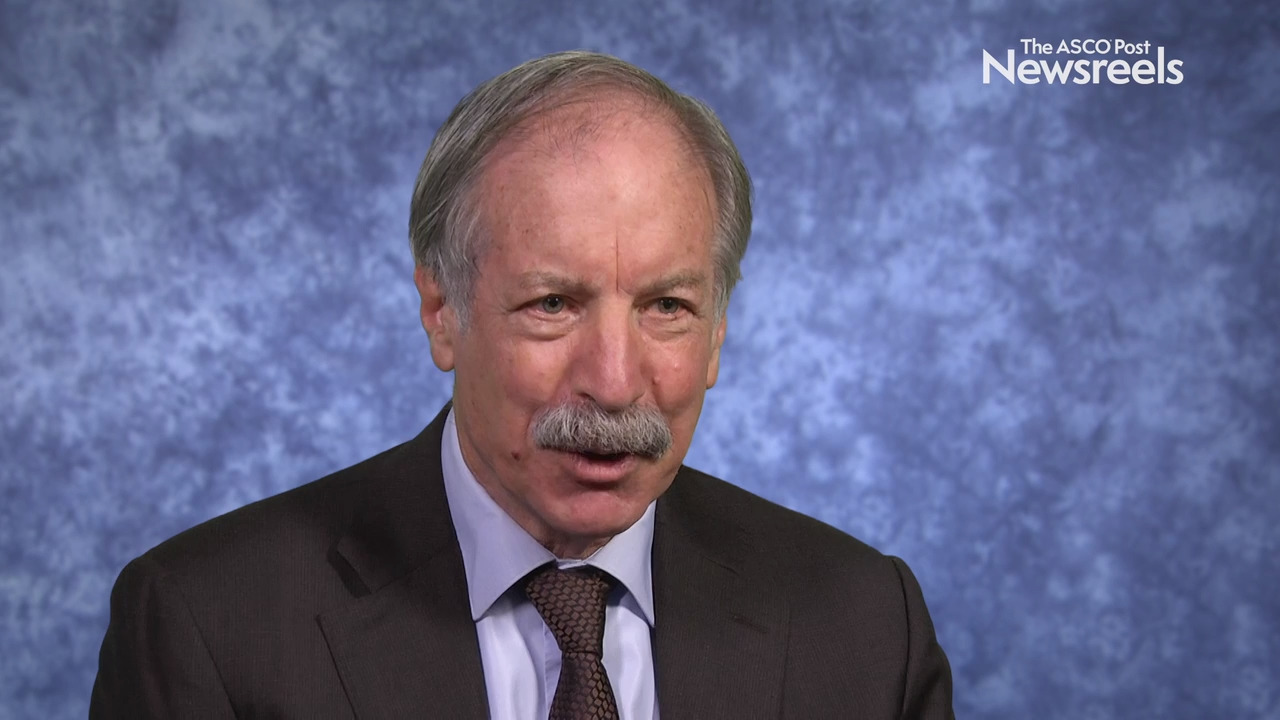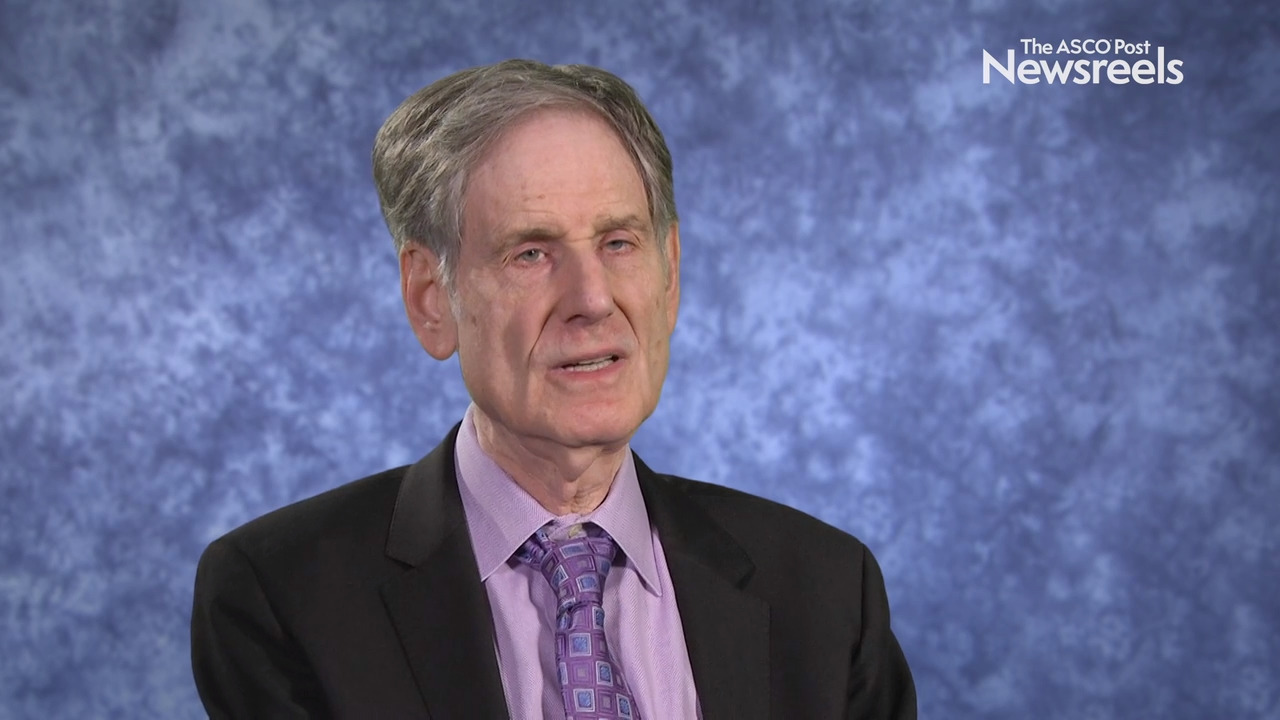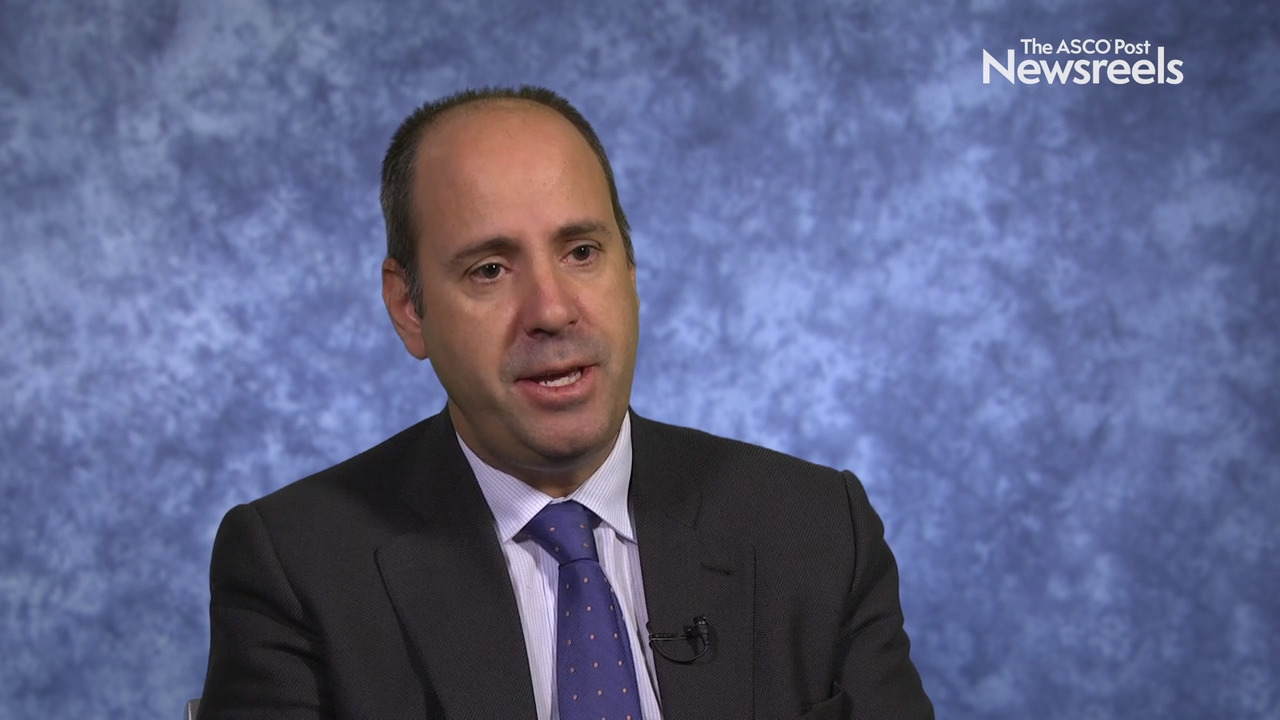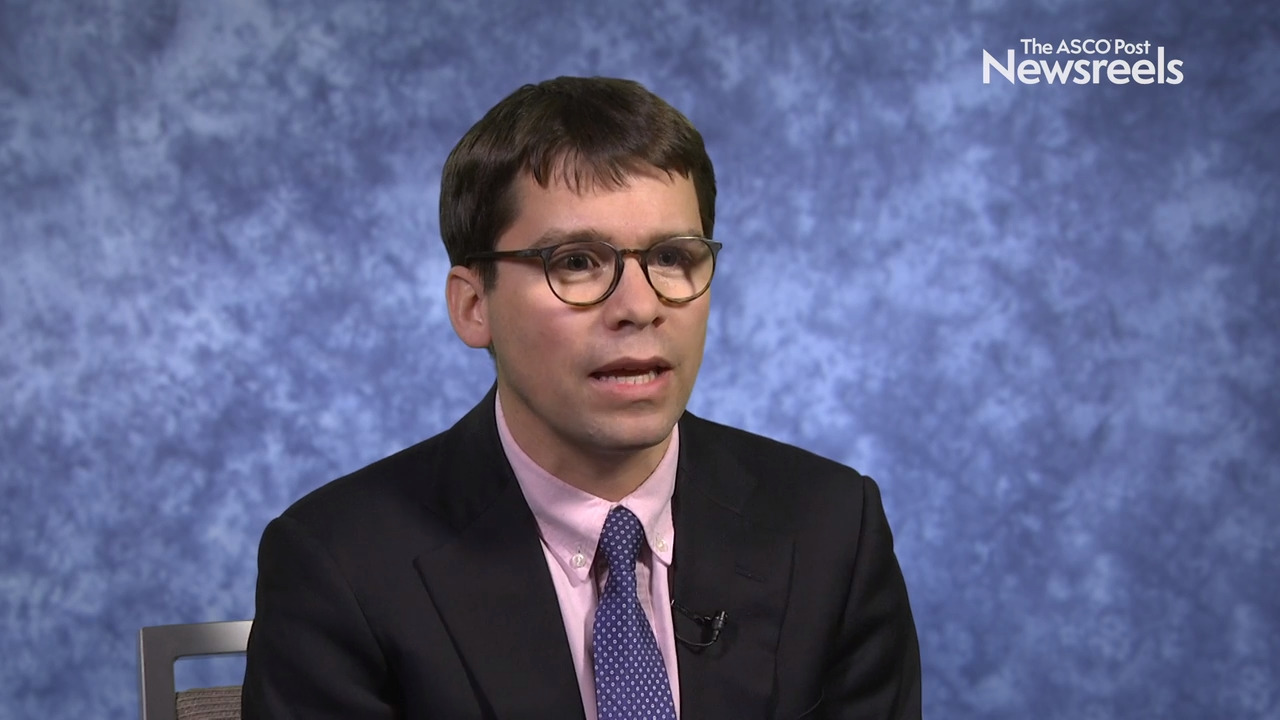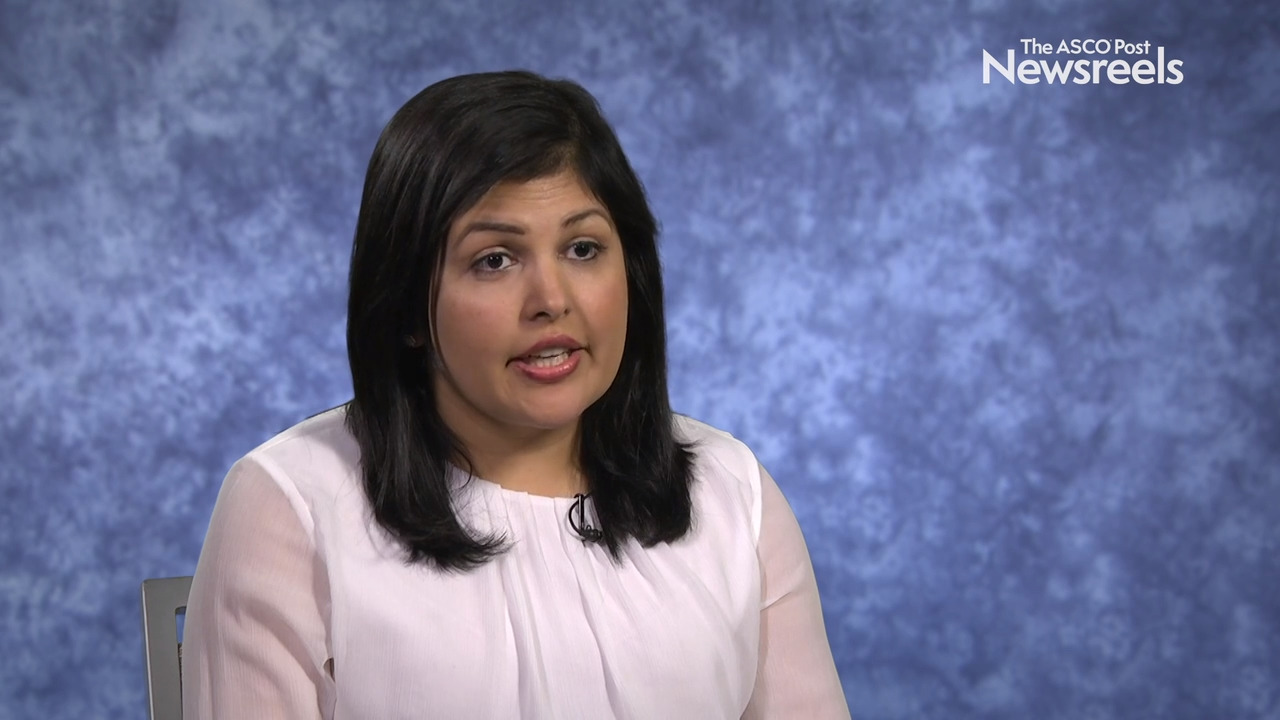Milan Radovich, PhD, on ctDNA After Neoadjuvant Chemotherapy and Recurrence in Triple-Negative Breast Cancer
2019 San Antonio Breast Cancer Symposium
Milan Radovich, PhD, of Indiana University School of Medicine, discusses trial findings that show patients with triple-negative breast cancer who are at high risk of relapse after receiving preoperative chemotherapy can be risk-stratified based on the presence of minimal residual disease as determined by circulating tumor DNA and circulating tumor cells (Abstract GS5-02).
Jack Cuzick, PhD, of Queen Mary University of London, discusses the substantially greater benefits of anastrozole as compared with tamoxifen in terms of preventing breast cancer, with no increase in fractures or other reported serious side effects (Abstract GS4-04).
Ralph R. Weichselbaum, MD, of the University of Chicago, summarizes a plenary lecture in which he presented data that could guide future clinical strategies: studies supporting the basis and classification of oligometastatic disease, including breast cancer; and basic and clinical data on radioimmunotherapy (Abstract PL2).
Javier Cortes, MD, PhD, of the IOB Institute of Oncology, discusses study findings that suggested pembrolizumab offered a prolonged survival benefit compared to chemotherapy for a subset of patients with previously treated metastatic triple-negative breast cancer. In the trial, high tumor-infiltrating lymphocytes were significantly associated with better clinical outcomes with the checkpoint inhibitor.
Joerg Heil, MD, PhD, of the University Hospital Heidelberg, discusses findings on how accurately this technique can diagnose residual disease and pathologic complete response after neoadjuvant chemotherapy in patients with breast cancer. These data may help tailor, de-escalate, and potentially avoid unnecessary surgeries (Abstract GS5-03).
Rashmi K. Murthy, MD, of The University of Texas MD Anderson Cancer Center, discusses data on the efficacy and safety of tucatinib, trastuzumab, and capecitabine, a treatment regimen under investigation for patients with advanced HER2-positive metastatic breast cancer refractory to standard-of-care regimens (Abstract GS1-01).
